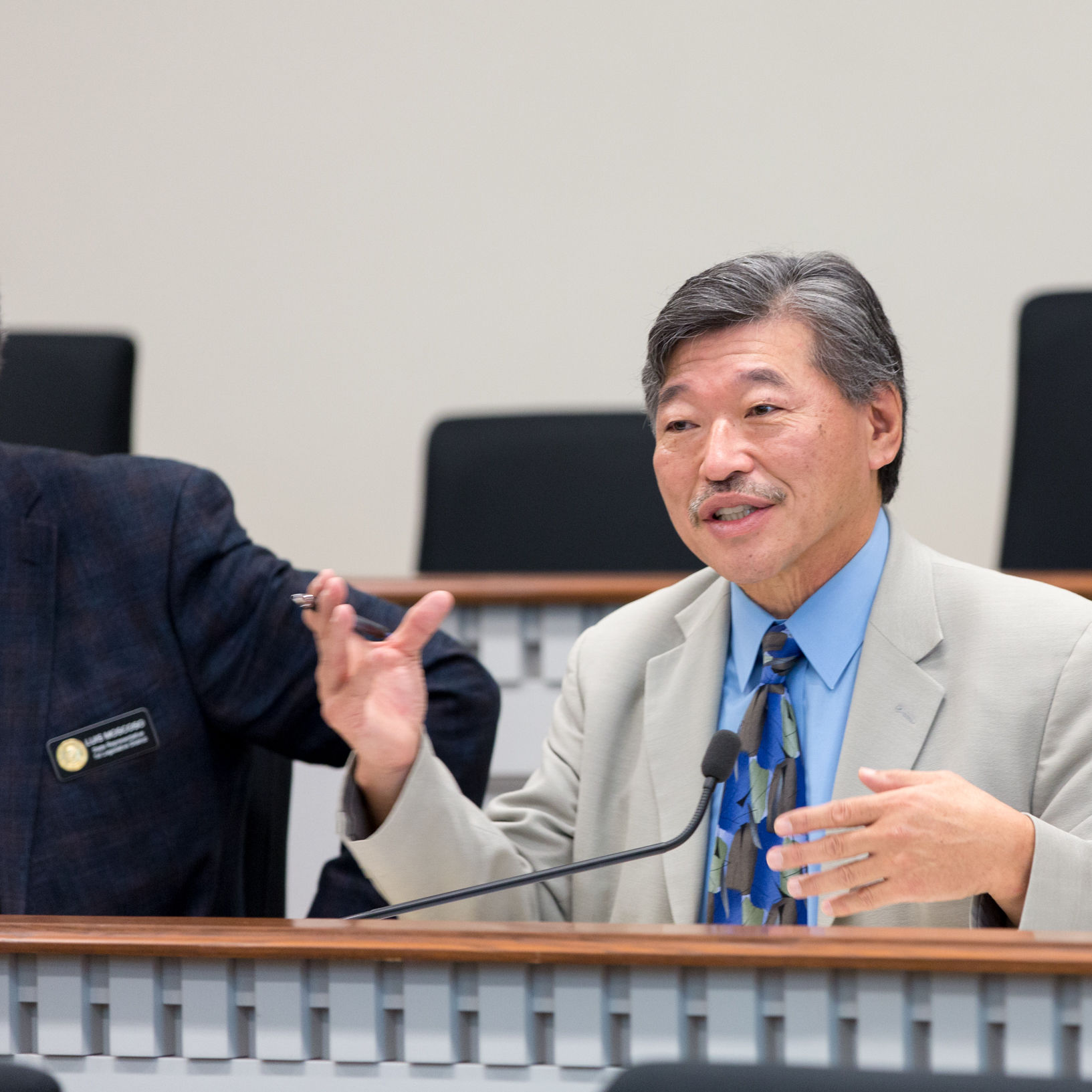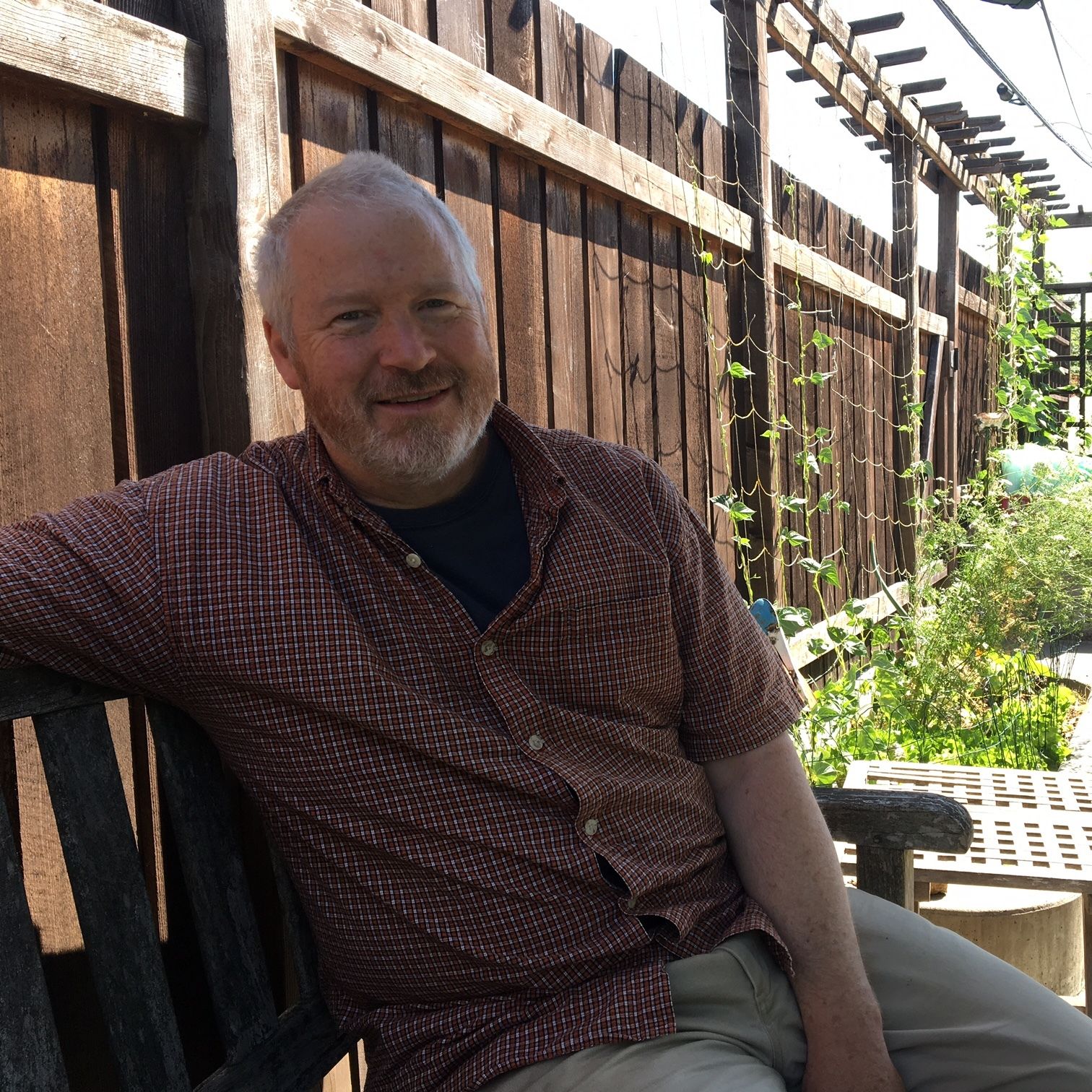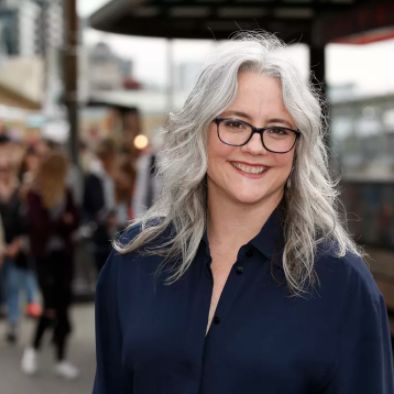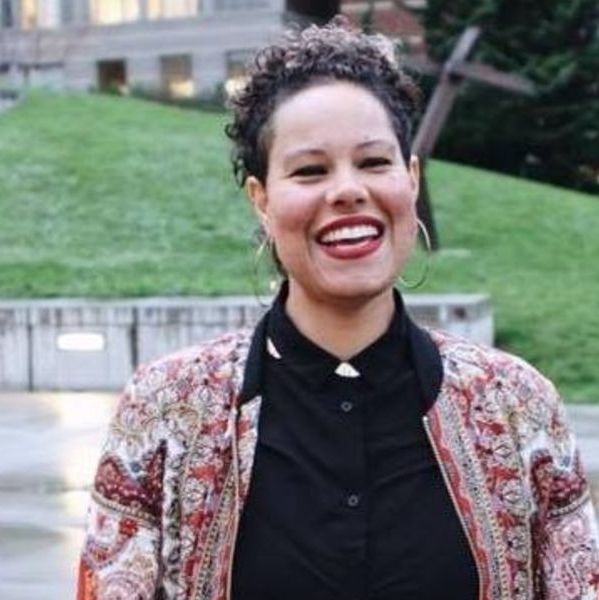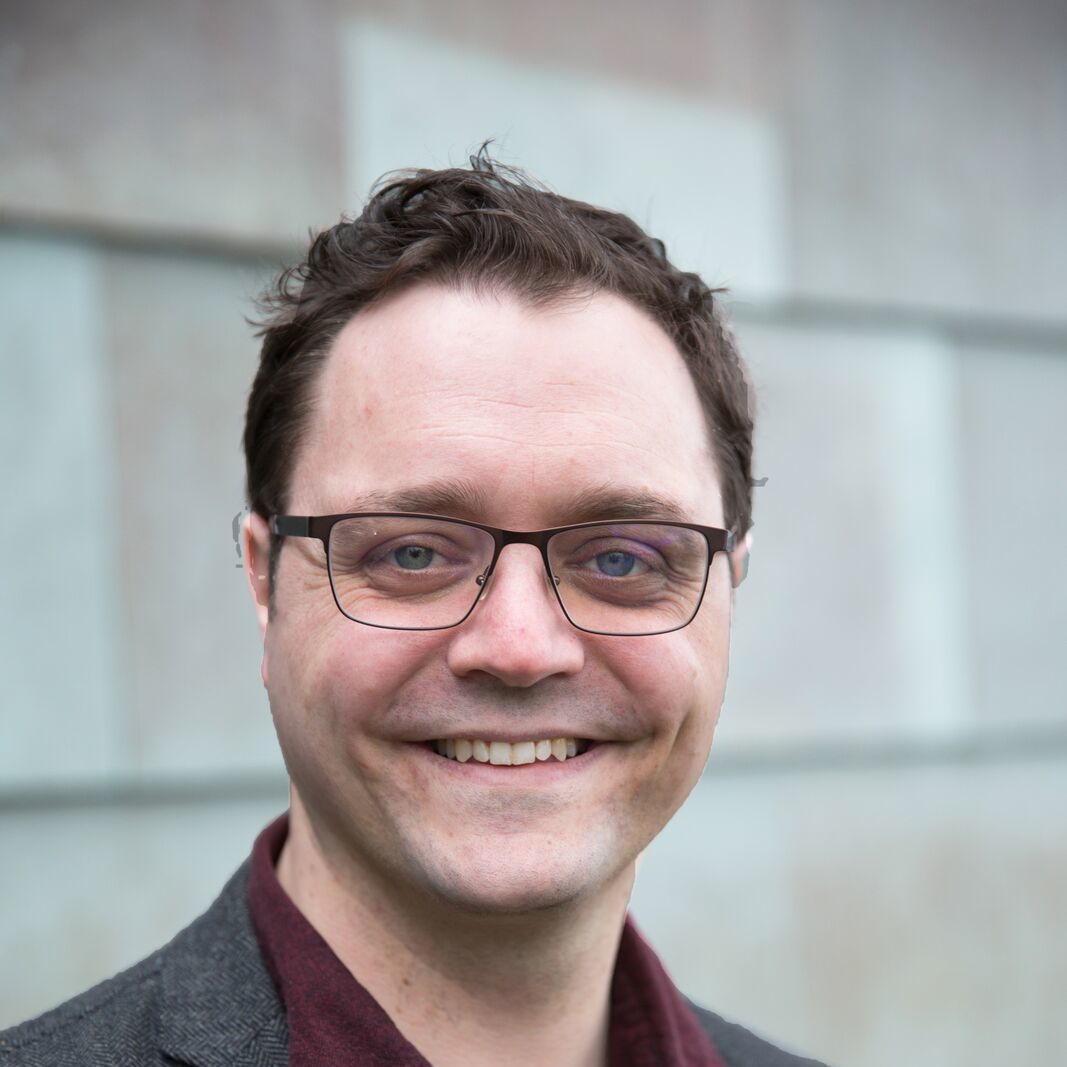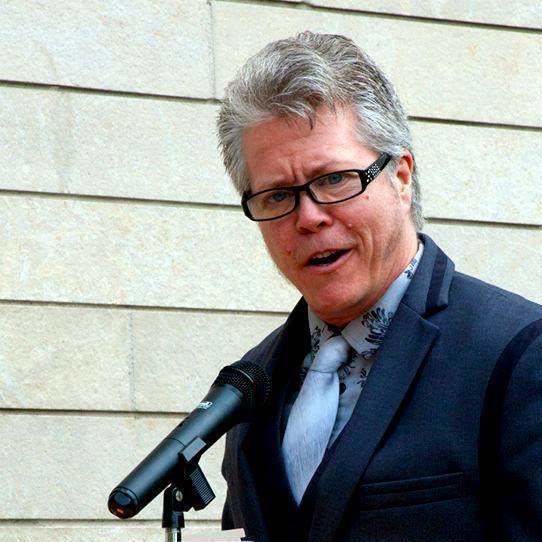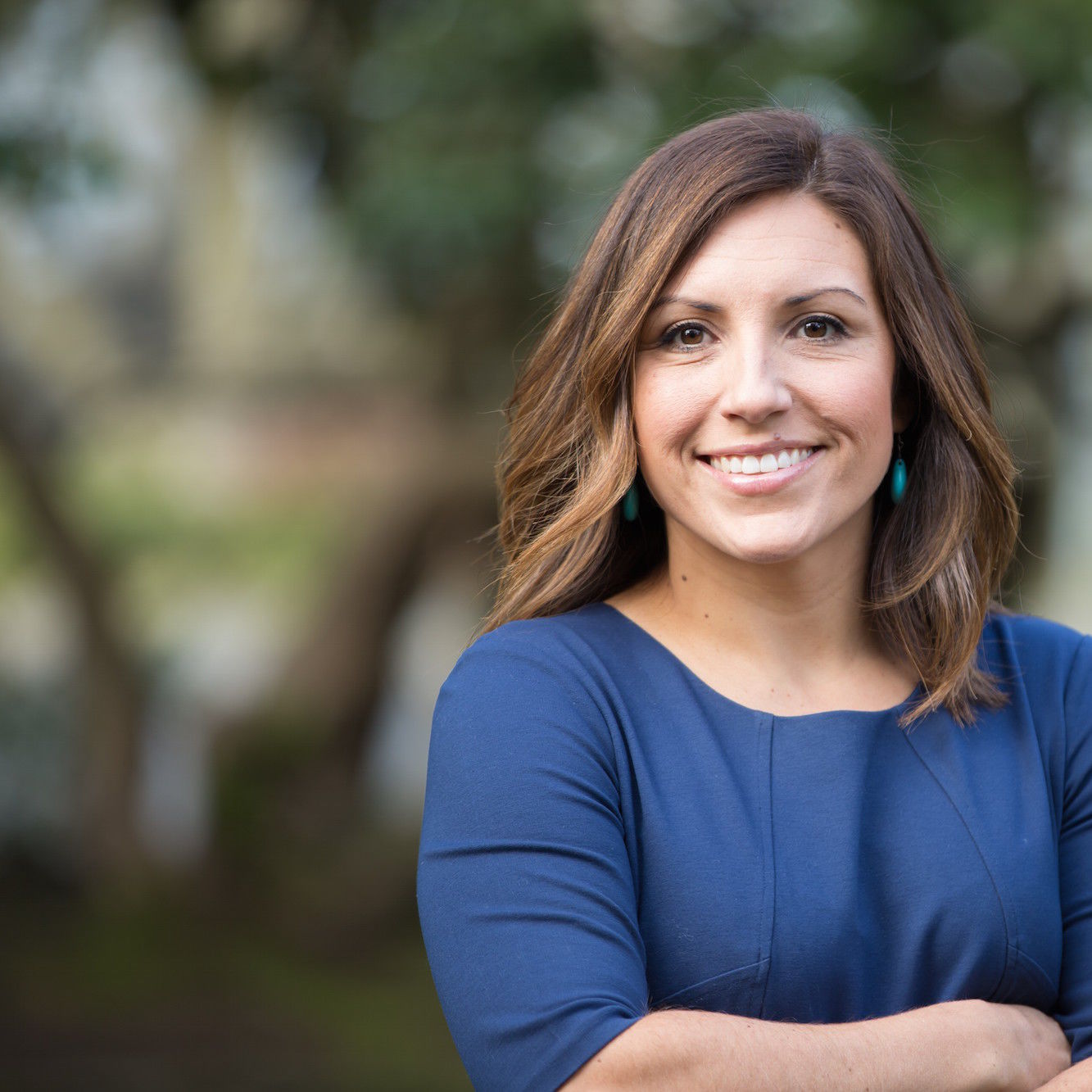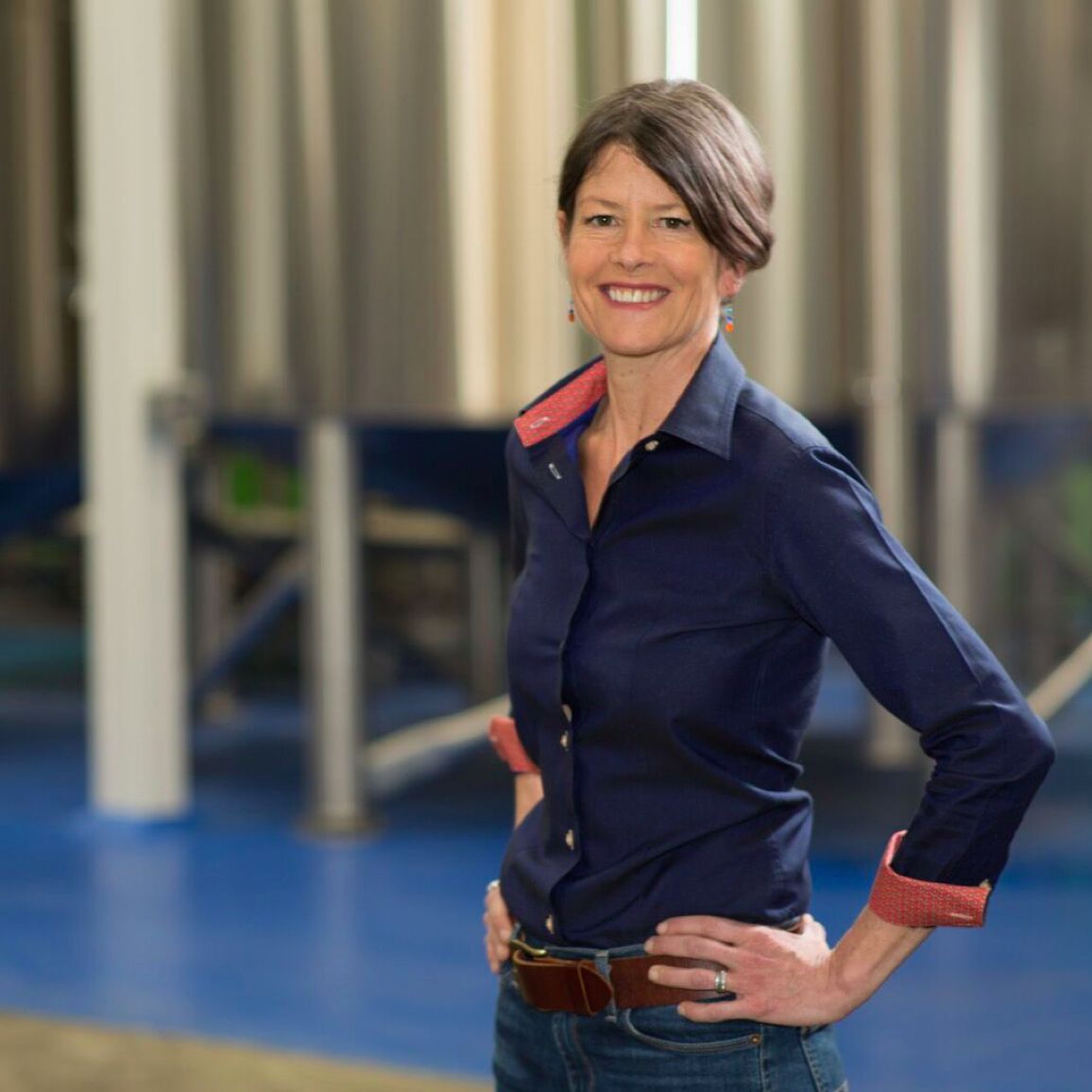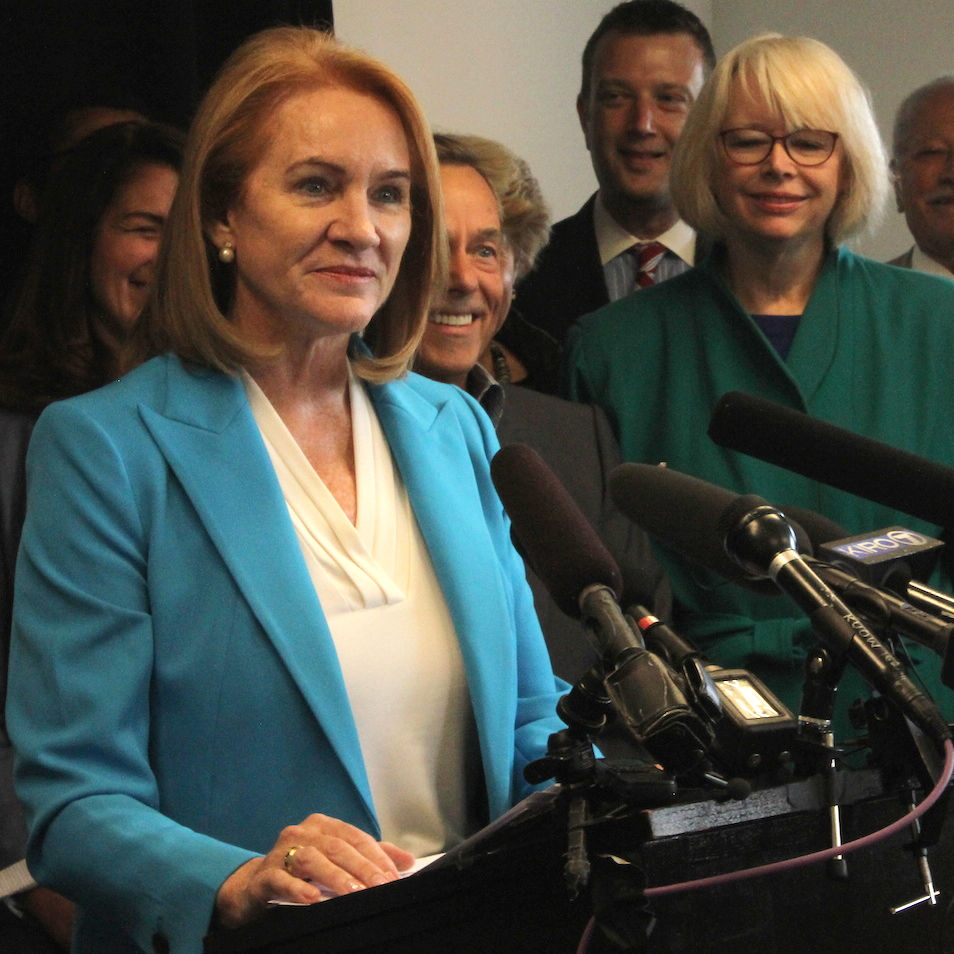Candidate Profile: Jessyn Farrell
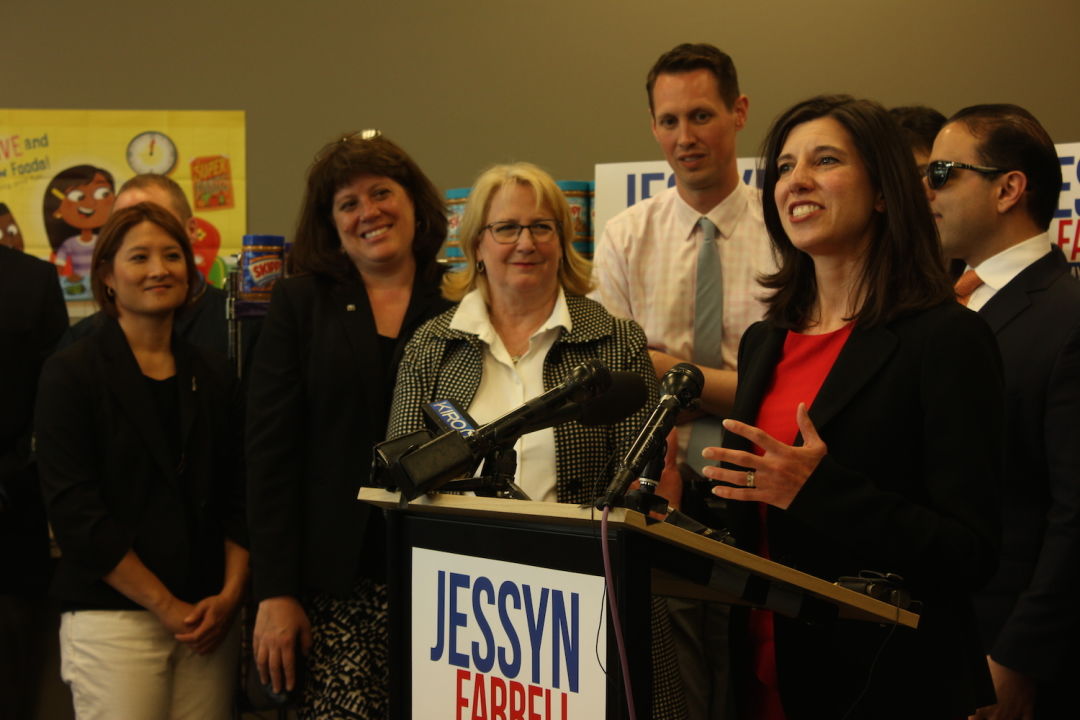
Jessyn Farrell announces her resignation as a state representative of Northeast Seattle to focus on the mayor's race.
Image: Hayat Norimine
Jessyn Farrell was voted "most likely to be a politician" in her high school yearbook.
"I really was that kid" who was deeply interested in politics, Farrell told PubliCola. And lobbying for public transit in Olympia, she said, only motivated her further to run for office; she saw hardly any women her age there. In 2012 she became a state representative for the 46th Legislative District (Northeast Seattle).
Farrell, 43, announced her run for mayor on May 12, the same day as U.S. attorney Jenny Durkan, knowing she couldn't raise money for her campaign while she was still in the state legislature. On June 1 she resigned from her legislative seat to focus on the race. Since then she's raised nearly $90,000, according to the Public Disclosure Commission.
"There are so many different ways to serve the community. I also really believe in going all in and doing something with everything that I've got," Farrell said, in an answer to whether she'd regret giving up her seat if she lost. "I wouldn't regret it. It's really important to show up and do the work."
Farrell's a favorite among Democratic groups (along with Bob Hasegawa) and was endorsed by several legislators and some high-profile state Democrats—like state auditor Pat McCarthy and lieutenant governor Cyrus Habib. As former director of the Transportation Choices Coalition, she's known as a public transit advocate and took the organization over in the wake of what Farrell called "a pretty lousy" ballot measure that lost in 2002, Referendum 51.
"There was a lot of bitterness in the environmental community," Farrell said. "There wasn't any transit in it—it was just a big highway expansion." She forged alliances with not just transit activists, but environmentalists. Under her leadership the group managed to successfully lobby for more light rail and shift the focus away from highways. She became known as a state representative with political prowess, a talented negotiator. She's been endorsed by council member Rob Johnson, who was also a former leader of the coalition, as well as urbanist blogs like Seattle Transit Blog and The C Is for Crank.
Farrell wants to speed up the light rail project to West Seattle, Ballard, and the East Side by streamlining permitting—which had been done in 2015 for highway projects—and make Sound Transit eligible for state funding. And though a study in 2015 showed KeyArena would go into a deficit if a new SoDo stadium were built, Farrell prefers the SoDo stadium; she said the transportation issues and an influx of people in the SoDo neighborhood would be easier to mitigate, and get funding for, given federal funding streams that are available for freight mobility.
She's been endorsed by Martin Luther King County Labor Council along with Hasegawa. Farrell's been most consistently a progressive vote in Olympia—with the exception of her support to reduce an inflated valuation system of cars, which cut an estimated $2 billion in funding to Sound Transit. She also told PubliCola on June 1 that she supported the city's soda tax but would've preferred it include diet beverages; she later changed her position on the tax, namely, she said, because of too many regressive taxes the city has already used.
Farrell, a mother of three, said one of her top priorities would be to make child care more affordable in the city; she wants to put more money into the Families and Education Levy in 2018. Farrell's mom ran an in-home daycare when she was young, and she said that shaped her perspective on the difficulties of that job. As a kid, Farrell had a hole in her heart; and by the age of seven, she needed risky open heart surgery that her parents couldn't afford. The Seattle Children's Hospital paid for it.
On police reform, though Farrell said police chief Kathleen O'Toole has done a good job leading a force through a challenging time, more should be done at the state level to improve the hiring process for law enforcement—she wants to allow permanent residents to be officers, by adding that to the legislative agenda for the city. (Currently they have to be U.S. citizens.)
"I think part of (reform) is who is serving as police officers, and what the work force looks like, and what the hiring processes are like," Farrell told PubliCola. "The more the police work force looks like the communities they work for, the better."
Farrell advocates for more tiny homes as a short-term solution to homelessness and sanctioned encampments in strategic locations where more public health services are available; and for affordable housing, more mother-in-law units, backyard cottages and work force housing. Farrell's platform includes priorities she would take up in the city's legislative agenda—like examining preemption laws on firearm measures that the city could pursue as a way to reduce gun violence. Her supporters say she's politically savvy, and knows how to move the progressive needle forward.
"I have learned more from Jessyn in my short time in the House of Representatives about vision and leadership than I could've ever imagined," said Nicole Macri, state representative for the 43rd District, at a press conference June 1. "I know that Jessyn has both the skill and the leadership to get us where we need to go."
Updated July 11, 2017, at 11:39am: This post corrects typos and the year Referendum 74 was on the ballot.
Updated July 17, 2017, at 3:36pm: This post includes MLKCLC and The C Is for Crank endorsements.
